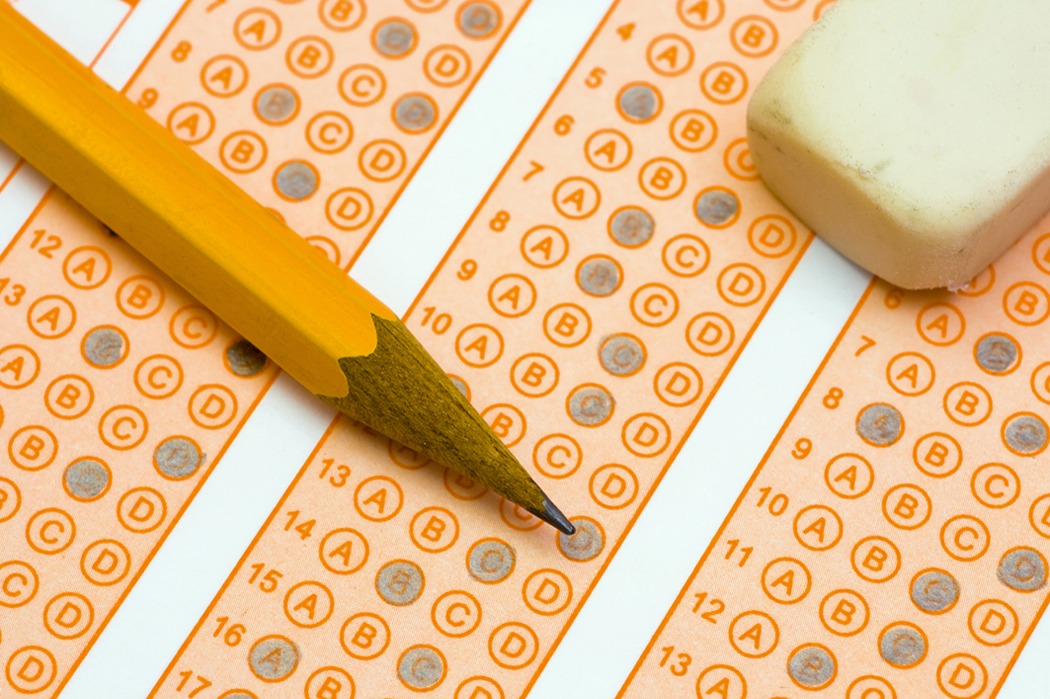By Rebecca Lessner
For MarylandReporter.com
An unusually bipartisan group of 39 Maryland lawmakers, lead by a freshman delegate who is a veteran high school math teacher, is calling for reconsideration of Maryland’s use of standardized testing in public schools.
Del. Eric Ebersole, D-Baltimore-Howard, told the House Ways and Means Committee on Thursday that standardized test results do not help teachers realize areas where students are struggling, as they were designed to do. Instead, they are pitting communities and schools against each other.
HB 452 proposes the creation of a 19-person commission dedicated to studying the effectiveness of Maryland assessments and standardized tests in public school. The bill is co-sponsored by 27 Democrats and 11 Republicans, including the House majority and minority leaders and the Ways & Means chair.
‘Focus of instruction turned on its head’
Ebersole believes the competition stems out of the pressure from the federal government to meet “adequate yearly progress,” as set forth in the federal No Child Left Behind Act.
“The focus of instruction was turned on its head, where teachers were once tasked with encouraging children to become intelligent, critical thinkers, they were instead instructed to drill students to memorize the answers and algorithms to succeed standardized tests,” said Ebersole.
Under No Child Left Behind, “100% of students need to score proficient on state assessments beginning in spring 2014, a standard that is impossible for almost every school in every state to meet,” said the Department of Legislative Services.
Failure to meet the federal standard results in interventions and staffing changes over subsequent years, which encourages teachers to focus on test scores.
“We need to ask ourselves what testing is accomplishing,” said Ebersole. “Where are we after 30 years of testing? We are still 23rd internationally.”
The commission, which will include two senators and two delegates, and a chair appointed by Gov. Hogan, will analyze standardized testing done at every grade level.
“It would be very short sighted of us to look at only one kind of testing,” said Ebersole.
Testing rather than learning
Teachers testifying in favor of the bill felt the amount of testing students are required to complete is not only excessive, but is robbing the students of their education by pulling them out of classrooms to administer tests.
“It is probable that in some schools that over 40-days of standardized testing will occur,” said Ebersole, who has taught high school math for decades in Howard County.
Rebecca Anderson, a kindergarten teacher at Rippling Woods Elementary School, Anne Arundel County, said the varying times students are assigned to take these tests is unfair.
“It is unfair to compare the readiness of a student who’s been in school for two weeks, to a student who has been receiving instruction for two months,” said Anderson.
The Kindergarten Readiness Assessment (KRA) is done one-on-one with the teacher.
“So while I’m working with one student, all 23 of my other 5-year olds are doing extended independent work,” said Anderson. “I cannot be present as a teacher while I’m acting as a test administer.”
In 2014, the Board of Public Works approved the Partnership for Assessment of Readiness for College and Careers (PARCC) tests, which are used in grades K-12 and align with the new Common Core curriculum.
Compared to the older option, the Maryland School Assessment (MSA), which took up to two hours across four school days, the PARCC can take up to nine days when administered at a middle school level.
Dawn Pipkin, test administer at Leonardtown Middle School in St. Mary’s County, says all subjects have assessments now, including band and physical education (PE).
“At some point we have to look at duplicity of efforts,” said Pipkin.
Under the bill, the Maryland State Department of Education will provide staff for the commission. The department said it could do so with existing resources, so it would not bring additional cost, which pleased Ebersole.
The commission is required to give the State Board of Education, and each local board of education, a recommendation by April, 2016. By June, 2016, the boards must consider the commission’s findings.




Finally….what a concept!!! To teach children to think for themselves versus to teach to a test. A novel idea that hasn’t been used in decades.